“Film is kijken naar mensen die kijken.”Het gangstermeisje [A Gangstergirl] (Frans Weisz, 1966)
Sep
20
Sophia Loren – 1934
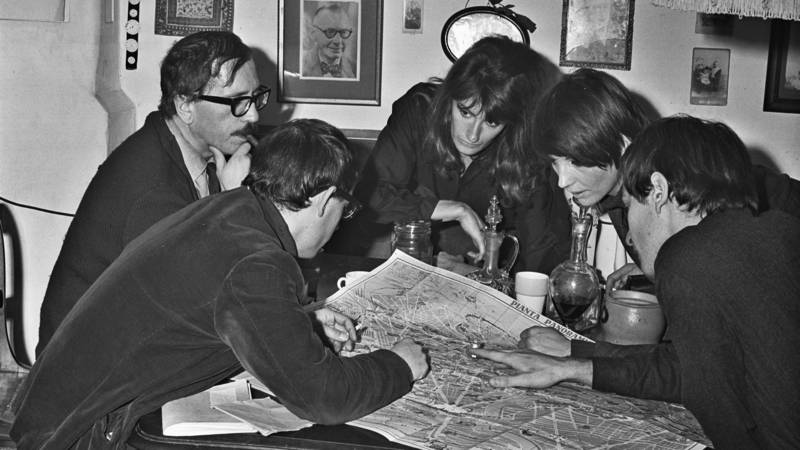
Cast and crew study a map of Rome (via). DP: Gérard Vandenberg.
Italy or Sophia Loren for La Loren's birthday (1934).
– Remco Campert, Het gangstermeisje (1965)
A writer tasked with writing a screenplay based on his novel Het gangstermeisje suffers from writer's block. Some time at his friends' house in France brings the inspiration needed but also a few twists and turns, similar to his book, leading him to Cinecittà.
1960s
Smrt si říká Engelchen [Death Is Called Engelchen] (Ján Kadár + Elmar Klos, 1963)
Sep
19
ER – 1994
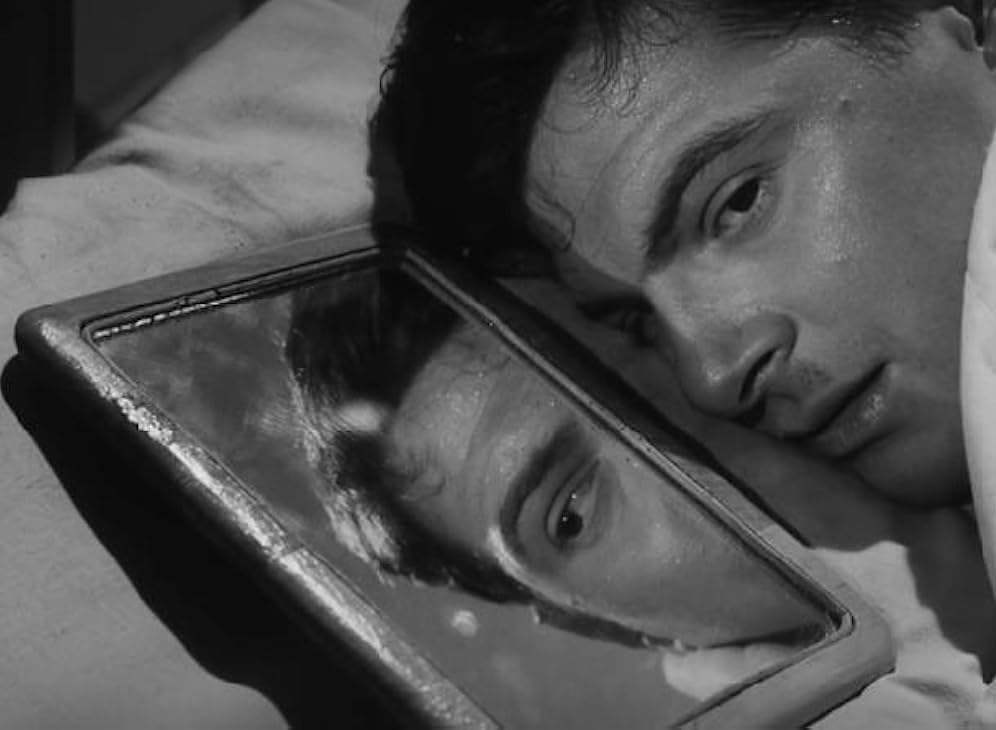
Pavel (Jan Kačer) recovering face-down in his hospital bed. DP: RudolfMilič.
An emergency room: ER debuts on this date in 1994.
A paralysed Czechoslovak partisan recovering from a shot in the back in an emergency ward, feverishly remembers the events that brought him to that moment. He particularly remembers Engelchen, the SS Sturmbannführer who killed his best friend and massacred the local villagers.
Слънцето и сянката [Slantzeto i syankata / Sun and Shadow] (Rangel Vulchanov, 1962)
Sep
18
National First Love Day
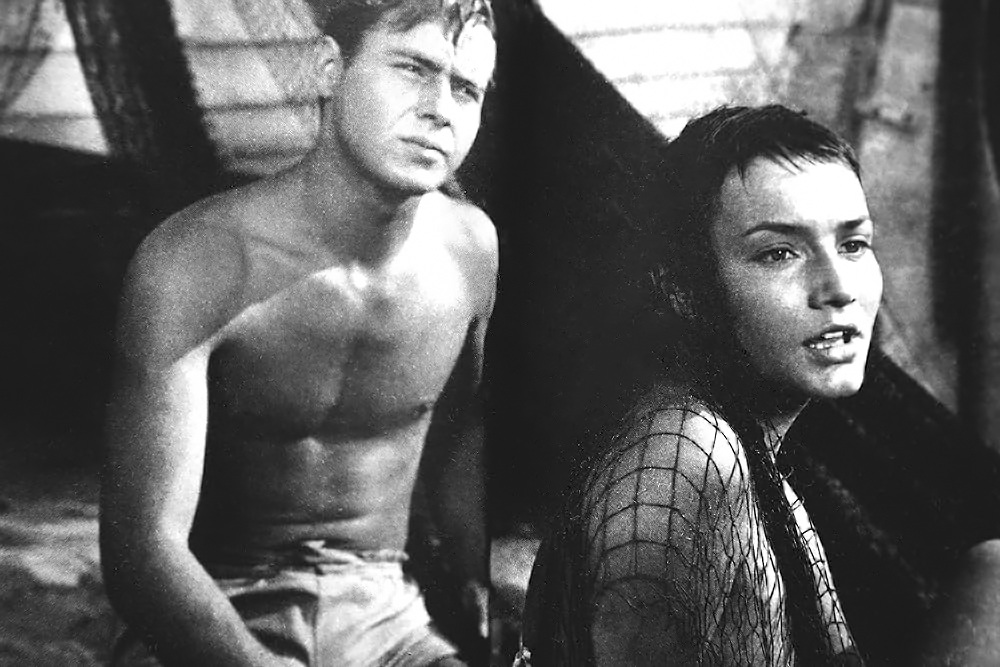
The two young lovers (Georgi Naumov and Anna Prucnal). DP: Dimo Kolarov.
First love for National First Love Day (USA).
A boy and a girl fall in love at a resort at the Black Sea. He's the son of an architect, an optimist who sees creation where possible. She's the daughter of a nuclear scientist, the future an inevitable apocalypse.
A Sunday in September (James Hill, 1961)
Sep
17
1961
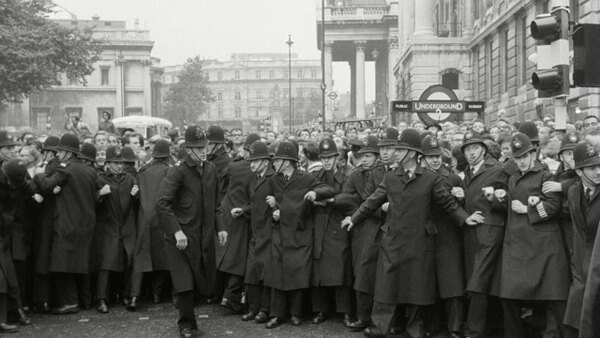
A large group of bobbies attempts to block off the street in front of an Underground station. They're greatly undone by the large group of protesters behind them (via).
Television documentary about the nuclear disarmament demonstration at Trafalgar Square on September 17, 1961 (description via aforementioned link in the caption).
“¡Mexicanos!
¡Vivan los héroes que nos dieron patria!
¡Viva Hidalgo!
¡Viva Morelos!
¡Viva Josefa Ortiz de Domínguez!
¡Viva Allende!
¡Vivan Aldama y Matamoros!
¡Viva la independencia nacional!
¡Viva México! ¡Viva México! ¡Viva México!”La fórmula secreta [Coca-Cola en la sangre / The Secret Formula] (Rubén Gámez, 1965)
Sep
16
El Grito de Independencia
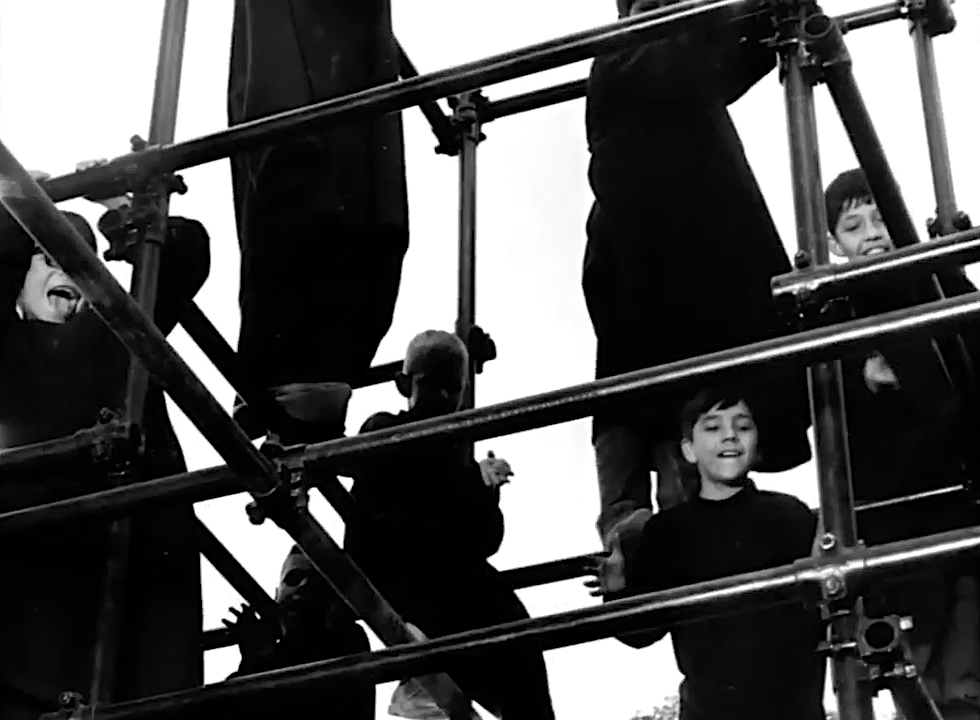
Grinning seminary boys hang from monkey bars. DPs: Salvador Gijón, Rubén Gámez & Segismundo Pérez de Pedro 'Segis'.
El Grito de Independencia: ¡Viva México!
– El Grito
Accompanied by Juan Rulfo's poem, Gámez explores Mexico's identity, and loss thereof. Crying out for the Mexican with Coca-Cola in the blood.
“In the next world war, I believe that both sides could stop before the ultimate destruction of cities so that both sides could retire for a period of ten years or so of post-attack recuperation, in which world wars four to eight could be prepared.”The War Game (Peter Watkins, 1966)
Sep
16

An old man in uniform, possibly a mailman or traffic warden, stands motionless in a crowd of people. He looks off into the distance. DPs: Peter Bartlett & Peter Suschitzky.
– a leading American nuclear strategist
“Stop shooting! Stop democracy!”Hullumeelsus [Безумие / Madness] (Kaljo Kiisk, 1968)
Sep
15
International Day of Democracy
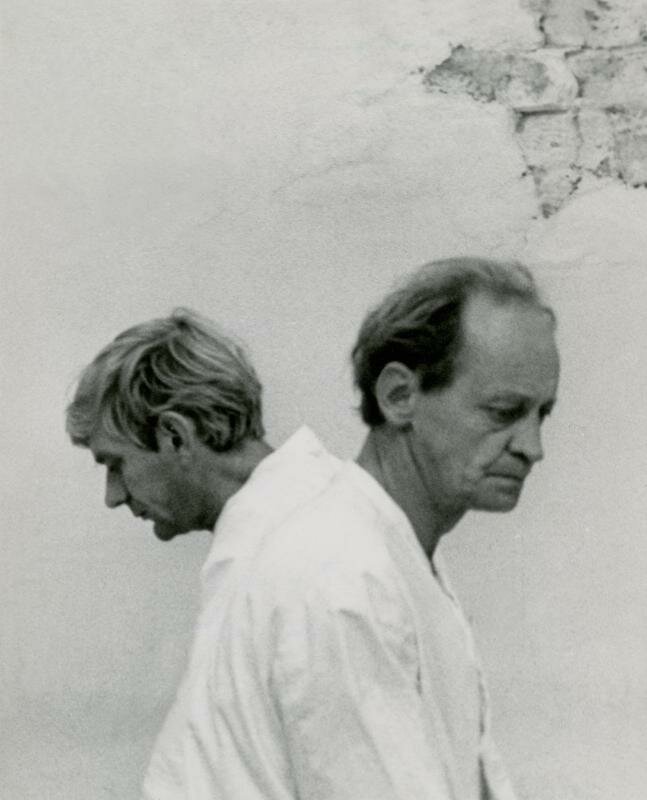
Windisch (Jüri Järvet) pacing, blending in with a white-clad inmate. DP: Anatoliy Zabolotskiy.
On the International Day of Democracy, the word “democracy” is spoken.
– Person Nr. 1
The Gestapo arrives to liquidate the inmates of a mental hospital. Then Windisch, plainclothes Nazi, brings them a letter: there's a special commando hiding amidst the 583 patients. Interrogating them slowly pushes Windisch among them.
“They call me MISTER TIBBS.”In the Heat of the Night (Norman Jewison, 1967)
Sep
13
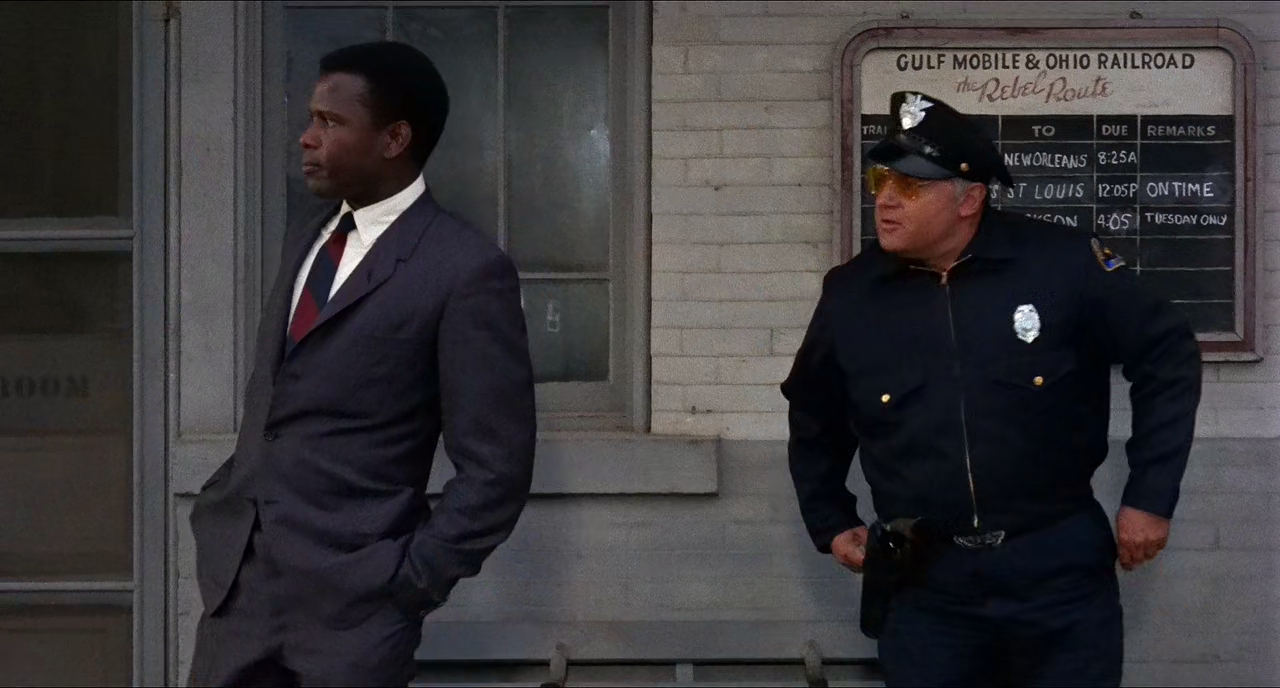
Det. Virgil Tibbs (Sidney Poitier) and Chief Bill Gillespie (Rod Steiger) at the train station. The timetable is written by hand on a blackboard. DP: Haskell Wexler.
– Det. Virgil Tibbs
血は渇いてる [Chi wa kawaiteru / Blood Is Dry] (Yoshishige Yoshida, 1960)
Sep
11
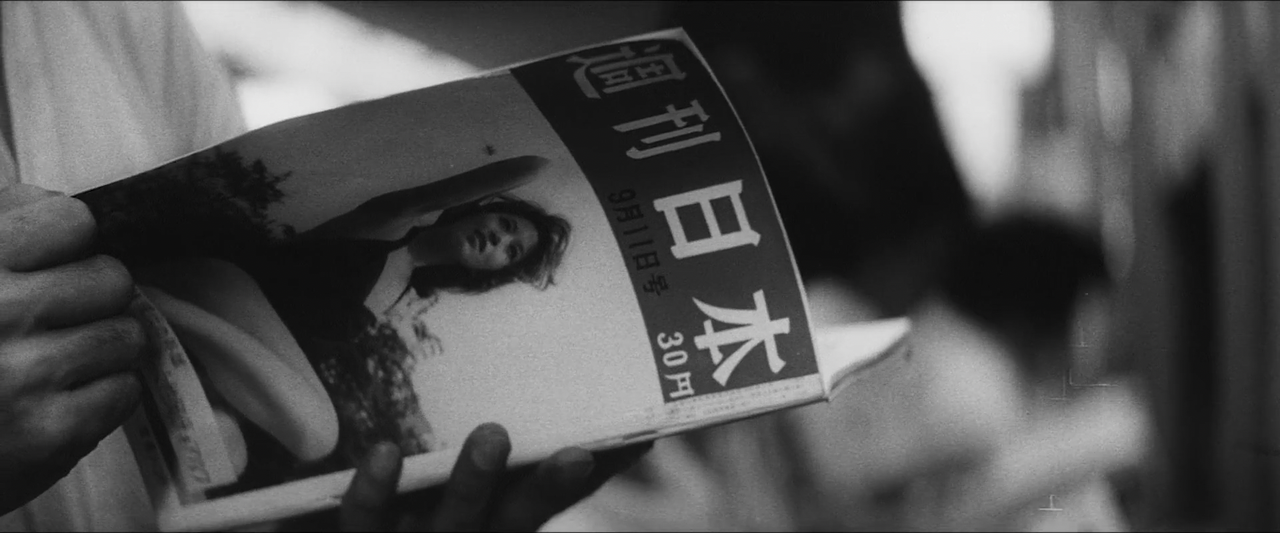
The September 11 copy of a scandal magazine. It costs 30 yen. DP: Tōichirō Narushima.
Maléfices [Sorcery / Where the Truth Lies] (Henri Decoin, 1962)
Sep
10
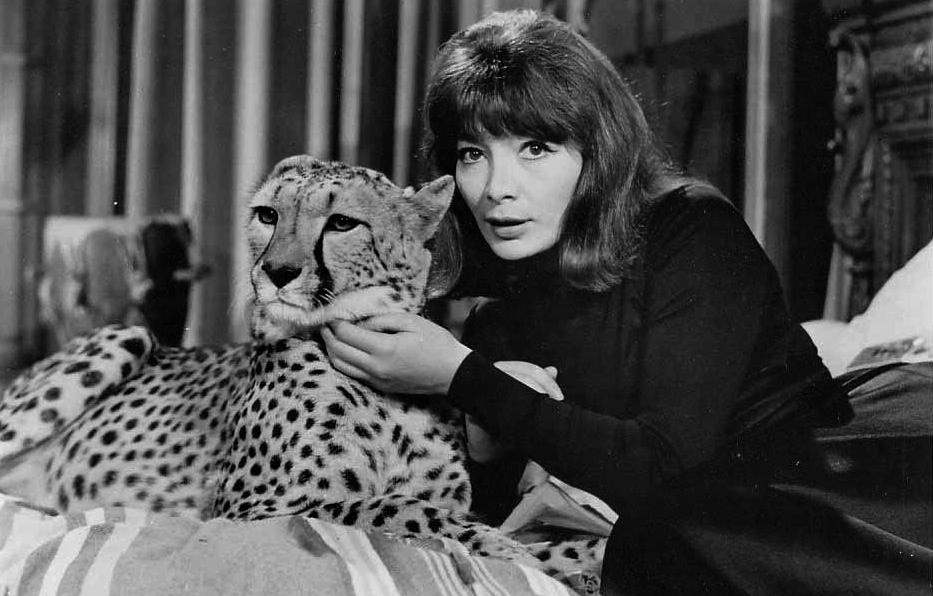
Myriam Heller (Juliette Gréco) sharing a bed with Nyète, her cheetah. DP: Marcel Grignon.